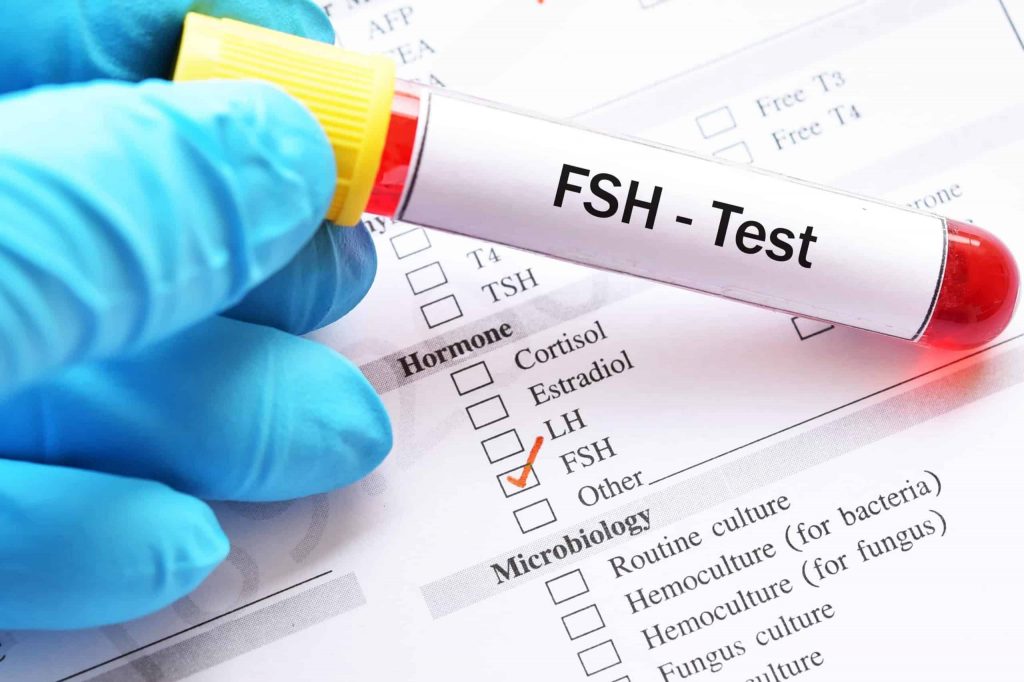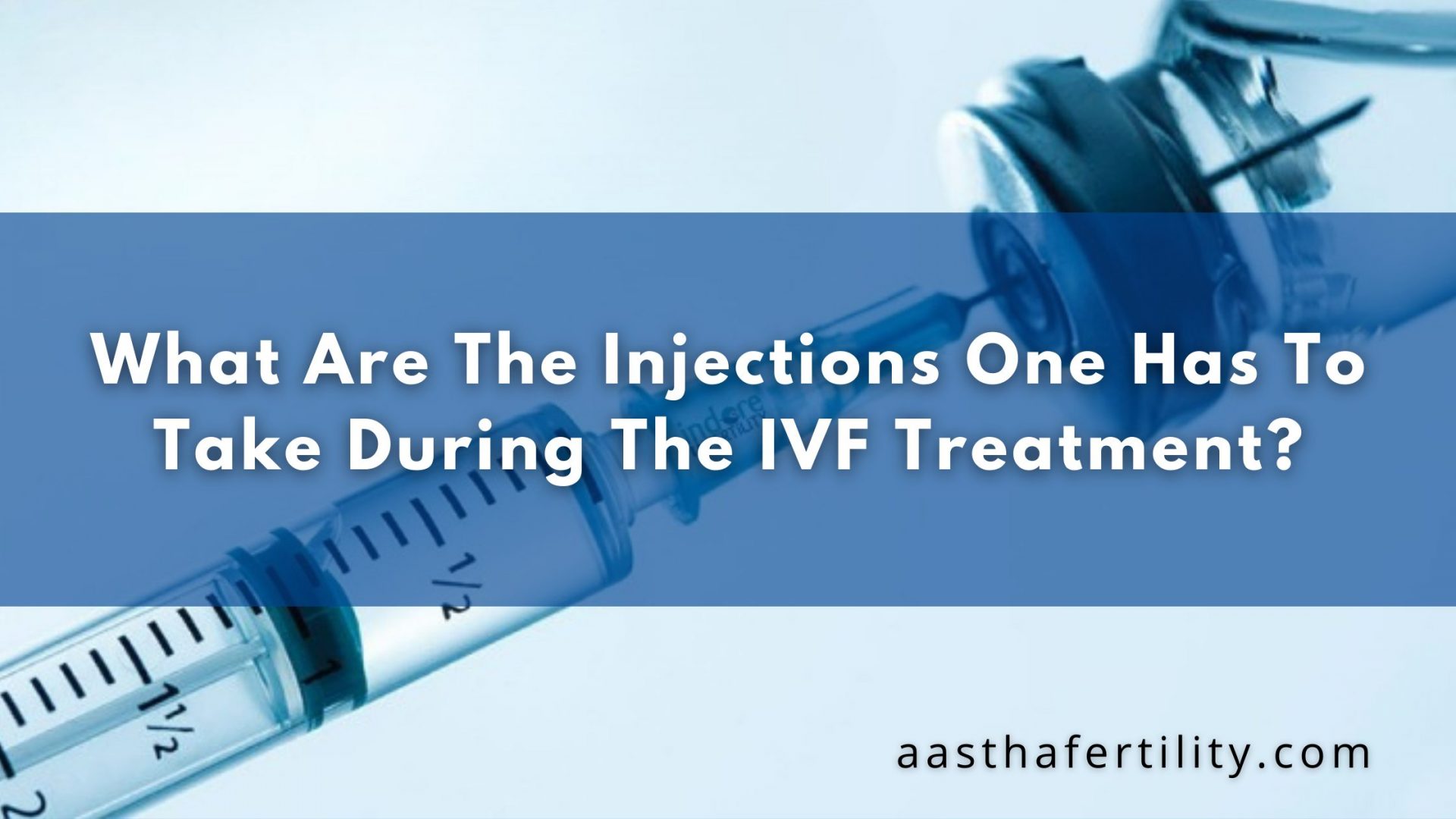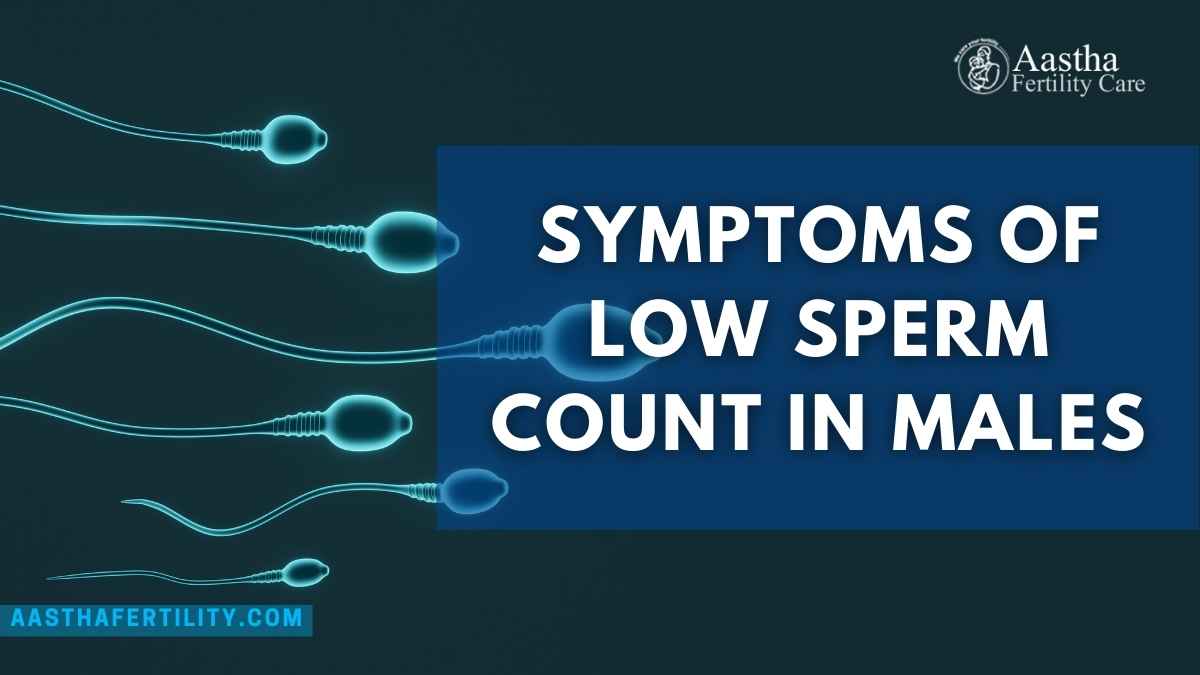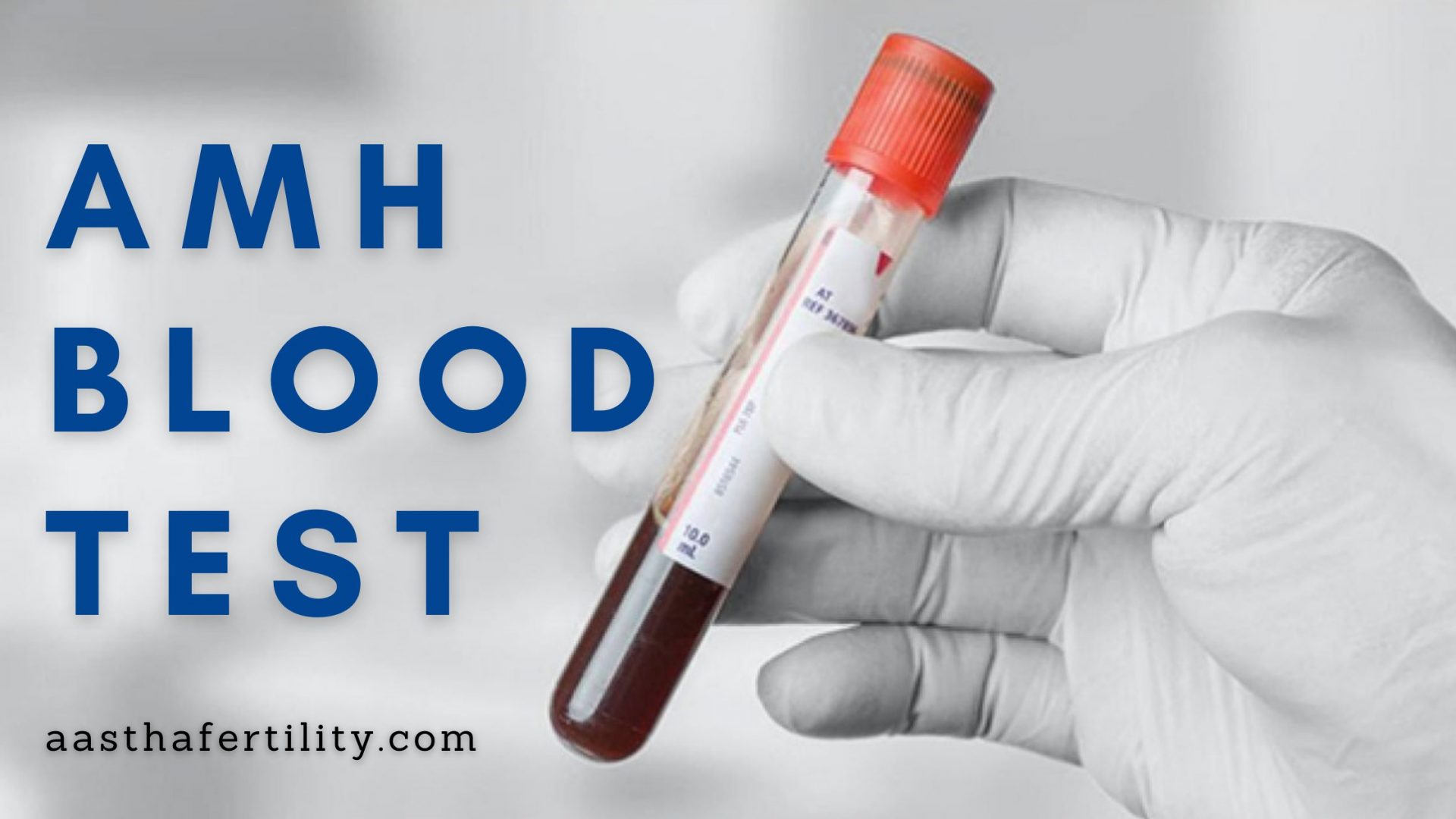Table of Contents
ToggleFSH- Follicle Stimulating Hormone plays an essential role in the reproductive functions of our body. Infertility is one of the most common concerns that both men and women face. When a couple goes to a doctor for infertility testing, the physician will usually perform blood tests to check levels of FSH. This hormone helps assess fertility and reproductive health.

In females, follicle-stimulating hormone matures ova, the ovarian follicles, and without FSH, females will not be able to release an egg. Whereas in men, the hormones regulate and support the development of sperm. The insufficient amount of FSH can lead to significant fertility issues in either partner, decreasing the chances for a couple to conceive naturally.
The main reason behind ordering blood tests during basic fertility checks is to know the FSH levels. It further helps find the underlying cause and symptoms of infertility. To help you better understand the working of FSH and details about its levels, this blog will provide you with the typical ranges of FSH, detailing their impact on our reproductive cycles.
What is Follicle-Stimulating Hormone?
Follicle-stimulating hormones are one of the gonadotrophic hormones released by the anterior pituitary gland into the bloodstream. These tiny sacs of fluid found in a woman’s ovaries influence the menstrual cycle, maintaining a hormonal balance in your body. Each of these follicles has the potential to release its egg for the fertilization process.
FSH increases the production of estradiol, an estrogen that helps mature and releases the follicle. During the last days of menstrual periods, estrogen levels in the body are low. It signals the pituitary gland to send more FSH that will elevate the process of maturing and releasing the eggs.
In men, FSH stimulates testicular growth and is responsible for the protein that creates and maintains the production of normal sperm cells.
FSH Levels in Men and Women
High, low, and normal, these three levels of FSH determine your body’s reproductive health. FSH levels evaluate how the patient’s body will react to injectable fertility drugs or in-vitro fertilization treatment.
Based on the facts revealed by the United States Medical Institution, an individual’s FSH levels tend to change throughout the different phases of their life. Yet, there are some typical FSH ranges that all the fertility experts refer to to analyze their patient’s reproductive health.
These ranges may further vary between different institutions, laboratories, and studies. Therefore, it is advised to avoid any self-examination process and consult the fertility experts to avoid any confusion.
Normal FSH Level in Men
| AGE | FSH Range |
|---|---|
| Before Puberty | 0-5 IU/L |
| During Puberty | 0.3-10 IU/L |
| Adulthood | 1.5-12.4 IU/L |
Normal FSH Levels in men are defined as 1.4-18.1 IU/L, and if an individual is diagnosed with more than 4.5 IU/L, this can be a sign of negative semen analysis.
Normal FSH Level in Women
| Reproductive Stage | Normal FSH Levels |
|---|---|
| Before Puberty | 0-4 IU/L |
| During Puberty | 0.3-10 IU/L |
| While Still Menstruating | 4.7-21.5 IU/L |
| Perimenopause | 70-90 IU/L |
| After Menopause | 25.8-134.8 IU/L |
Doctor’s usually do not order the FSH test to diagnose menopause. They assess the same by the symptoms and the patient’s medical history. If a woman is diagnosed with an FSH level of more than 30 IU/L and has not gone through the regular menstrual cycle for more than a year, they have reached menopause.
In the early stages of pregnancy or 26-30 days after ovulation, a woman’s FSH levels drop from 0.1 IU/L to 0.3 IU/L.
FSH levels also tend to vary during the stages of menstrual cycles.
| Menstrual Cycle Stage | Normal FSH Levels |
|---|---|
| Follicular | 1-9 IU/L |
| Midcycle | 6-26 IU/L |
| Luteal | 1-9 IU/L |
High FSH levels in Women
High levels of FSH indicated poor ovarian reserves, which further reflects the low quality and quantity of eggs. People with elevated FSH levels are likely to respond to high doses of fertility drugs, and some experts might also advise dropping the IVF plans due to increased chances of failure.
When eggs can not mature through normal FSH levels, your body tries to fix the problem by increasing the IU/L. While undergoing the IVF treatment or injecting fertility drugs, FSH is injected into the body to stimulate the maturity process of the ovaries. Therefore, women with healthy ovarian reserves will have strong egg development in their ovaries, and women with poor ovarian reserves might not respond the same as desired.
But this does not indicate that you cannot conceive with your eggs. Instead, you might face some difficulties, but your fertility expert will find the best possible way out for you.
High FSH levels in Men
Men usually experience high FSH levels when their testes are not functioning in the ideal way. It happens when the pituitary gland responsible for regulating FSH goes into overdrive and produces an additional amount of FSH to support sperm production.
High FSH levels in men due to testicular failure may be due to:
- Genetic Problems,
- Chromosomal abnormalities,
- Testicular injuries,
- Medications,
- Advancing Age,
- Hormonal disorders,
- Undescended testicles,
- Testicular damage or injuries.
Low FSH Levels in Men and Women
One of the common reasons for low FSH levels in both men and women is the improper functioning of the pituitary gland. The part of the brain, hypothalamus, or the pituitary gland cannot produce an average amount of some or all of its hormones, leading to a decline in the normal levels.
Some of the other reasons for low FSH levels in women are:
- Pregnancy,
- Underweight issues,
- Have gone through a recent rapid weight-loss session.
Symptoms for High FSH Levels
Elevated FSH levels in women are usually related to menopause, and some of the high FSH levels symptoms include:
- Sudden and unexplained weight gain,
- Sleep disturbances,
- Emotional changes,
- Bone loss,
- Irregular menstruation,
- Vaginal dryness,
- Hot flashes.
OHSS (Ovarian Hyperstimulation Syndrome) can also be why high FSH levels in women. It is a rare pituitary gland condition that is often caused due to fertility treatments. Symptoms of OHSS include accumulation of fluid in the abdomen and enlarged ovaries, leading to pelvic pain. To avoid this, doctors regularly monitor patients with fertility treatments.
Symptoms for Low FSH Levels
Low FSH levels might indicate delayed puberty in children. Some of the symptoms of the same include:
- Infertility,
- Limited sperm production,
- Delays in sexual development.
What is FSH (Follicle-stimulating hormone) levels test and how is it used?
FSH, along with the luteinizing hormone, is responsible for the sexual functions of the female body. FSH is a traditional test used to measure the FSH levels in your blood.
In women, FSH tests are most often used to-
- Find out the problem with ovarian function,
- Help spot the actual cause of infertility,
- Confirm the beginning phase for perimenopause or menopause.
In men, FSH levels test are used to:
- Know the main reason for infertility,
- Find out the problem with testicles,
- Find the reason behind low sperm count.
How is the FSH Levels Test Done?
The test is as simple as a blood test. The healthcare provider takes a blood sample from a vein in your arm. They will insert a small needle to collect the desired amount of blood, further transferring the sample into a test tube or vial. Then measure the follicle-stimulating hormone (FSH) that is produced in your pituitary gland.
There is zero uncomfort during the test. Patients will only feel a little sting when the needle is inserted and taken out, and this will hardly take your five-seven minutes.
Conclusion
FSH is the essential hormone for our body that helps determine the reproductive health of both men and women. A slight change in the levels can affect fertility in the long run.
Doctors often order FSH tests for individuals who are experiencing infertility issues. This test will help with menopause testing and male and female fertility testing details. Patients need to go for blood work to know the levels at different menstrual phases.
If you and your partner are also facing any difficulties getting pregnant, then it may be the time to consult your fertility expert and get your hormone levels checked for in-time treatment.





Leave a comment